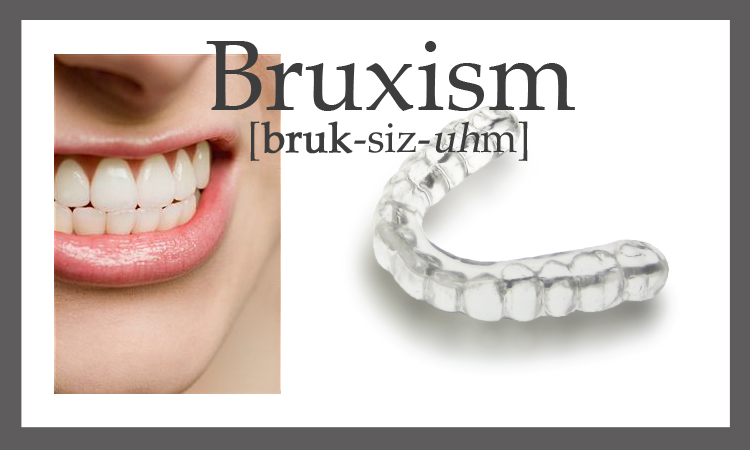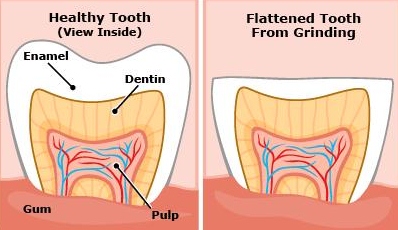
Bruxism
Bruxism is the medical term for the grinding of teeth or the clenching of jaws. Most people grind or clench their teeth from time to time, which usually doesn’t cause harm. However, when teeth grinding occurs on a regular basis, your teeth could be damaged, or other oral health concerns could arise.
Teeth grinding can be caused by stress or anxiety, an abnormal bite, missing teeth or even sleeping disorders such as sleep apnea. Since grinding often occurs during sleep, most people are unaware that they grind their teeth. Waking with a dull, constant headache or sore jaw are symptoms of bruxism. Family members may also hear your teeth grinding while you sleep.
Teeth grinding can have a negative impact on the oral health of your teeth.
It could result in the fracturing, loosening, or even loss of teeth.
The continuous grinding may also wear down your teeth resulting in the need for bridges, crowns, root canals, implants or even dentures.
In addition to damaging teeth, grinding can also affect your jaw, causing or worsening TMD/TMJ.
If you suspect you may be grinding your teeth, talk to your dentist. A custom mouth guard can help protect your teeth from grinding during sleep.
If stress is causing you to grind your teeth, talk to your doctor or dentist about options to reduce your stress such as stress counseling or exercise.
Other tips to avoid grinding include:
- Avoid or cut back on foods and drinks that contain alcohol or caffeine.
- Do not chew on pencils, pens or non-food items. Limit gum chewing.
- If you notice grinding during the day, help train your jaw to relax by positioning the tip of your tongue between your teeth.
http://www.webmd.com/oral-health/guide/teeth-grinding-bruxism
Leave a reply →
